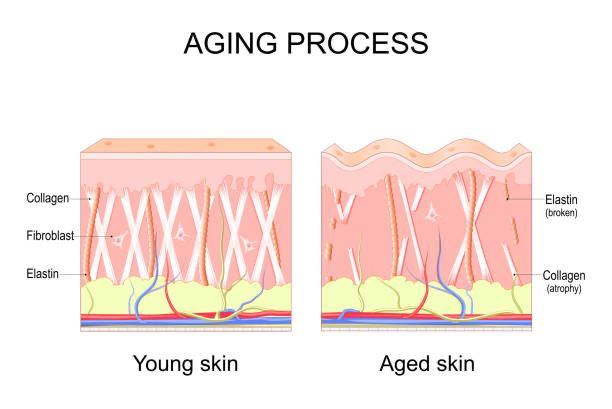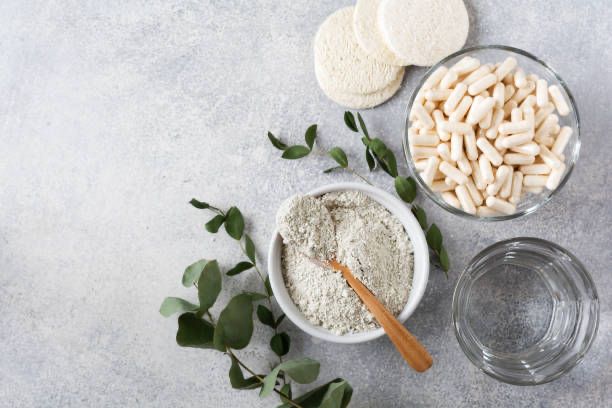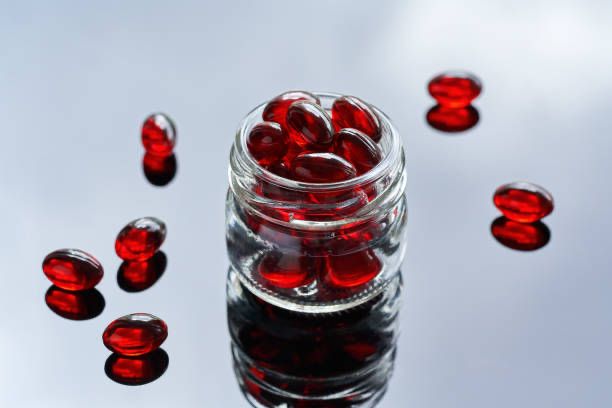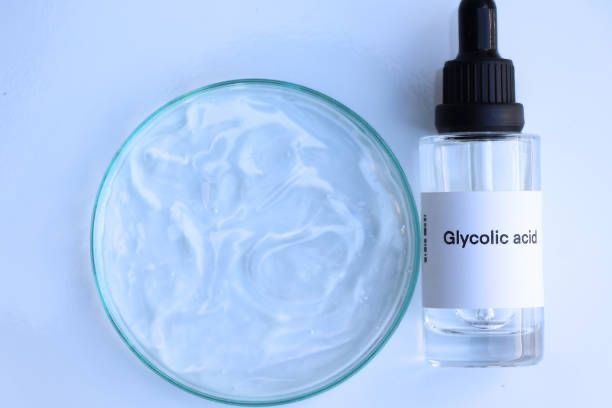Many skin complaints can be attributed to a simple lack of collagen. Fine lines? They crop up as your skin thins and collagen levels dwindle with age. From crêpey skin to loss of collagen and elastic fibers, sagging eye bags, and more, it can all be linked to the loss or reduction of collagen!
To understand collagen levels, one must first know what collagen is.
According to Wikipedia, Collagen is the main structural protein in the extracellular matrix of the body’s various connective tissues. As the main component of connective tissue, it is the most abundant protein in mammals, making up 25% to 35% of the whole-body protein content.
Collagen has been known to improve skin elasticity, skin hydration, and blood flow, heal wounds and prevent scars.
Collagen also prevents and reduces stretch marks, reduces visible cellulite and dark spots. It has also been lauded for improving self-esteem and reducing anxiety.

Following this definition and top benefits, it’s no wonder collagen has become one of the buzziest terms in the beauty lexicon, with more and more people itching to know how to improve their levels, and thus, their skin health.
Collagen literally makes up the structure of your skin, so if you really want to keep it firm for the long haul, you need to support your natural levels. Below, we list out 3 key ingredients you can integrate into your collagen-promoting routine.
3 beauty ingredients to restore your natural collagen levels and keep your skin firm.
Collagen supplements
One of the most effective ways to promote collagen production in the skin isn’t just bathing in serum but starting from within.
Research shows that collagen peptides can enhance your body’s collagen production1 by stimulating fibroblasts. Fibroblasts are cells that make collagen and elastin to begin with. As a result, those collagen supplements can support skin elasticity, and hydration, and smooth the appearance of textures like fine lines and wrinkles.

A clinical trial found that participants who took collagen supplements had moisture levels in their skin to be seven times higher than those who did not take collagen supplements.
It is important to note that not all collagen supplements are created equal. A stellar formula for skin health will deliver 10 to 20 grams per serving, contain nutrients that support collagen production through other pathways (like vitamin C), and features a clean ingredient list (i.e. no artificial colours, sweeteners, flavors, fillers, etc.). Natural collagen level boosters include beans, egg whites, tomatoes, garlic, fish, leafy greens, citrus, etc.
Astaxanthin
Like you, we didn’t always know what Astaxanthin is, but now we do. Astaxanthin is a carotenoid with powerful antioxidant properties, especially when it comes to dealing with free radicals from UV exposure. Up to 80% of the signs of skin aging, including thinning and loss of elasticity—are due to UV damage.
Consider getting an astaxanthin-infused serum. The natural sources of astaxanthin are algae, yeast, salmon, trout, krill, shrimp and crayfish.

In one study, astaxanthin supplementation combined with collagen significantly improved skin elasticity, smoothness, and hydration in 12 weeks.
Glycolic acid
When it comes to topicals, you might consider retinol the collagen-boosting holy grail. Nothing against vitamin A derivative, but we shouldn’t forget about the collagen-restoring power of glycolic acid. The AHA (Alpha Hydroxy Acid) has been shown to increase collagen production when used topically. The theory is that it triggers a restorative healing response in the skin, which spurs collagen production.

Just keep in mind that glycolic acid does have a smaller molecular size, meaning it penetrates more easily into the skin—and this can cause sensitivity for some.
Glycolic acid can be isolated from natural sources, such as sugarcane, sugar beets, pineapple, cantaloupe and unripe grapes
